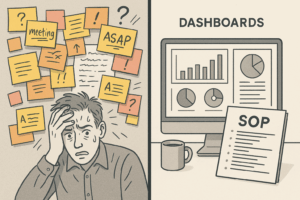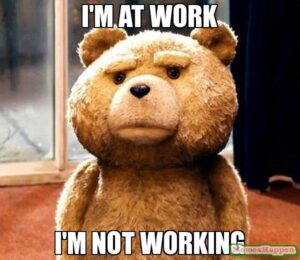Walk into any town in America and you’ll find them: the corner baker who makes the best sourdough you’ve ever tasted. The HVAC guy who shows up early and stays late. The salon owner who knows every client by name. These small businesses are the backbone of the economy—and yet, most of them are invisible online.
Not because they don’t care. Not because they don’t have something great to offer.
But because they’re either afraid to advertise, don’t advertise enough, or don’t advertise well.
And in today’s attention economy, that’s the same as never showing up at all.
The Harsh Reality: Most Small Businesses Don’t Advertise Enough
According to a recent survey by the U.S. Small Business Administration, more than one in three small businesses spend less than $10,000 per year on marketing. Even more shocking? Nearly 20% spend nothing at all.
Meanwhile, studies show that companies that advertise consistently experience higher revenue growth rates—up to 30% more than their peers who don’t. In fact, research from McKinsey found that businesses maintaining visibility during downturns or slow seasons bounce back faster and stronger than those that go dark.
But advertising is often the last thing a small business invests in. Why?
- They think it’s too expensive.
- They tried it once and it didn’t work.
- They don’t have time to figure it out.
- They’re afraid of “wasting money.”
- They don’t know what to say or how to say it.
These are valid concerns. But they’re also the exact reasons why advertising is no longer optional—it’s survival.
Fear, Confusion, and the Cost of Doing Nothing
Let’s call it what it is: most small business owners didn’t get into business to become marketers.
The roofing contractor is a master of shingles, not headlines. The family-owned restaurant runs on recipes, not retargeting ads. The coaching consultant is amazing at transformation, not conversion rates.
But here’s the problem:
The world doesn’t care how good you are if no one ever hears about you.
And today’s buyer? They’re scrolling past thousands of messages per day. If yours doesn’t grab them, make them feel something, and drive them to act—they’re gone.
What Happens When You Get It Right
When small businesses finally crack the advertising code, the results are staggering:
- Pura Vida started with handmade bracelets and a small ad budget. After refining their messaging and doubling down on paid ads, they hit $100 million in revenue.
- The Farmer’s Dog went from a small startup to a household name with simple, emotional advertising built around a single promise: better food for your dog.
- Squatty Potty turned a taboo product into a viral hit with brilliant creative and targeted media buys—leading to over $30 million in sales.
These aren’t tech unicorns or VC-backed giants. They’re just regular businesses who understood this one truth:
Great advertising isn’t just about selling. It’s about storytelling.
When you learn to tell your story well—across the right platforms, with the right messaging, and with enough consistency—you build something more than revenue.
You build a brand.
Advertising Is Brand Building
If you think brand building is only for Coca-Cola or Apple, think again.
Every time someone sees your name, hears your message, or remembers your jingle, your brand equity grows. That’s why these campaigns still stick in your head:
- “It’s my money and I want it now!” — JG Wentworth
- “Cha-cha-cha-chia!” — Chia Pets
- “Mr. Clean gets tough on dirt and grime”
And more recently:
- “Like a good neighbor, State Farm is there.”
- “Liberty, Liberty, Liberty…Liberty!”
- “That’s not how this works. That’s not how any of this works.” (Esurance)
These aren’t just ads. They’re anchors in your brain.
The reason these work isn’t because they had the biggest budget. It’s because they had the right message and repeated it often enough.
You don’t need a billion dollars. But you do need clarity, creativity, and consistency.
The Power of Omnipresence
Omnipresence means showing up in more than one place at once—on Facebook, Google, YouTube, TikTok, Instagram, email, and even direct mail.
You don’t need to dominate every channel from day one. But when you show up consistently across platforms where your audience already spends time, you become unforgettable.
People buy from brands they remember. People remember what they see repeatedly. Advertising is how you make that happen.
Most small business owners think, “I can’t afford to be everywhere.” The truth?
You can’t afford not to.
Why Going It Alone Slows You Down (Or Stops You Cold)
Learning advertising from scratch can feel like learning a new language.
Pixel tracking, copywriting, A/B testing, lead funnels, creative formats—these aren’t things most entrepreneurs are trained in. That’s why so many throw up their hands after one or two failed attempts.
But just because you don’t know how to do something yet doesn’t mean you shouldn’t do it.
If your roof was leaking, you wouldn’t spend six months watching YouTube videos on shingles. You’d hire someone who knows what they’re doing.
It’s the same with advertising.
Getting help isn’t a weakness. It’s a shortcut.
A good agency knows how to:
- Clarify your offer
- Identify your most profitable audience
- Build messaging that actually converts
- Scale what’s working
Instead of trying to guess your way through Facebook Ads Manager for the tenth time, you can let someone else take the wheel—while you focus on delivering a great service.
The Bottom Line: If You’re Not Advertising, You’re Not Growing
In today’s world, attention is the new currency.
If you want more sales, more customers, and more control of your future, you need more attention. And the fastest, most scalable, most predictable way to get attention?
Advertising.
Not someday. Not next quarter. Not when things slow down. Now.
Because if you keep relying only on word of mouth, referrals, or random foot traffic, you’re leaving growth to chance.
And great businesses should never leave their success to chance.
So What Should You Do Now?
If this hit you in the gut—good. That means there’s something powerful on the other side.
Start advertising. Start imperfect. Start messy. Start with help if you need to.
Just don’t wait.
Because the only thing scarier than spending money on ads is watching your business get left behind by those who did.







